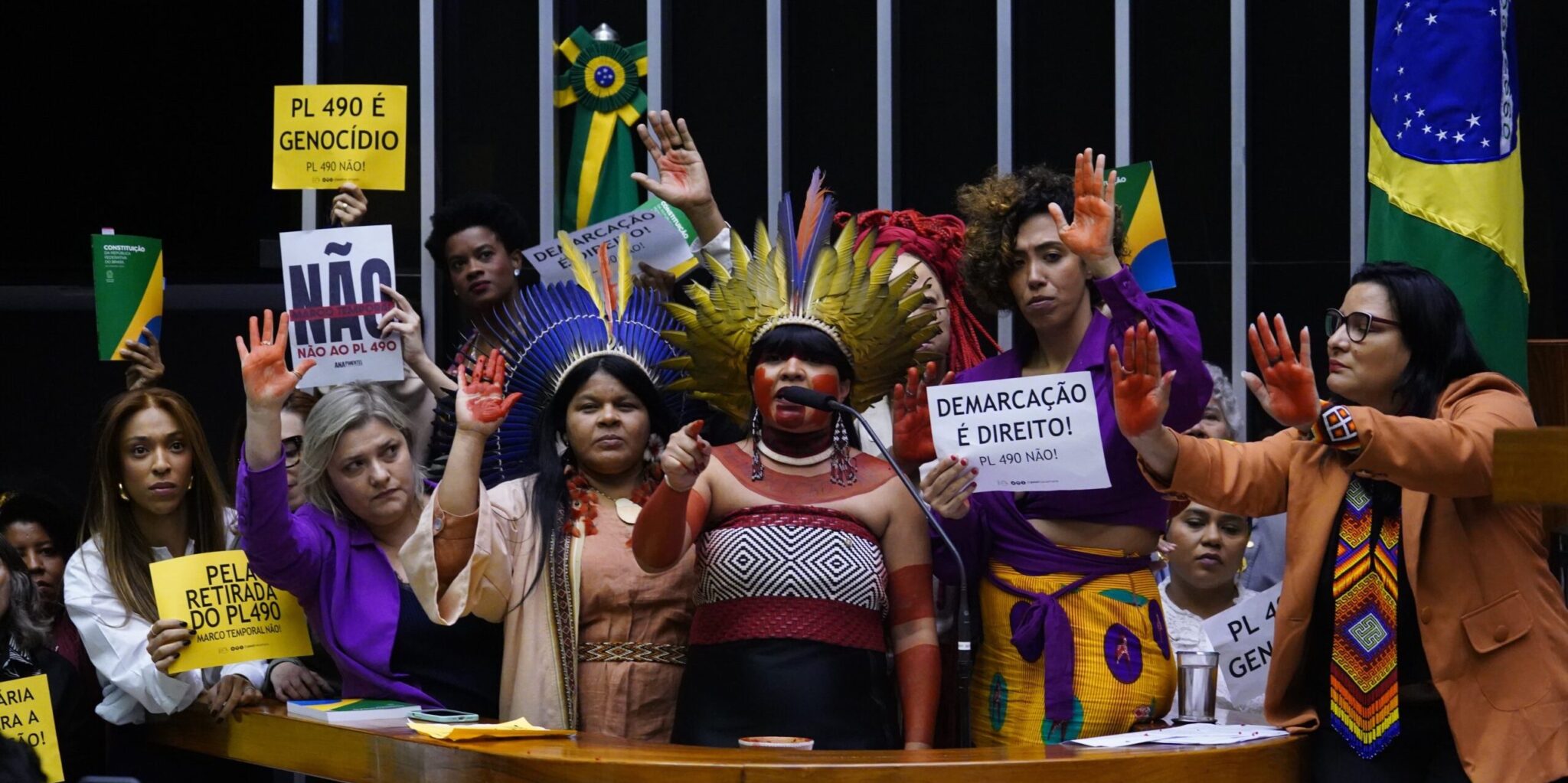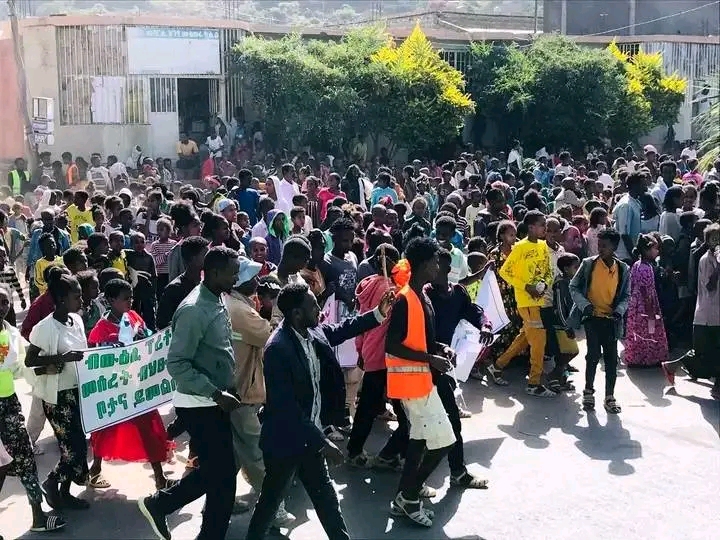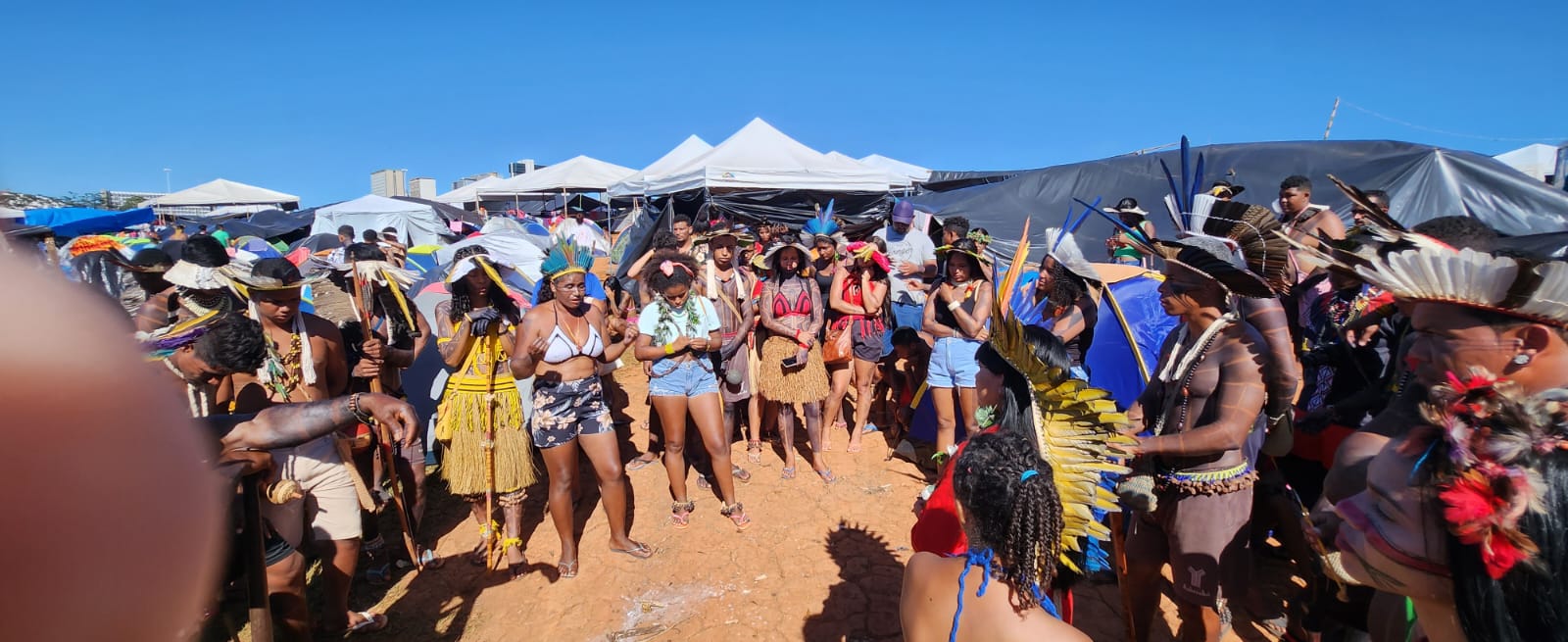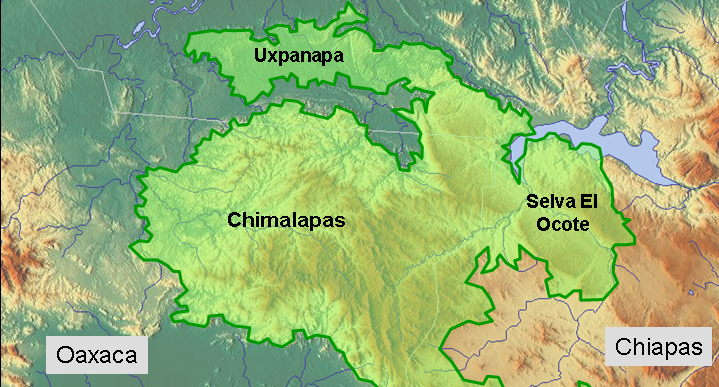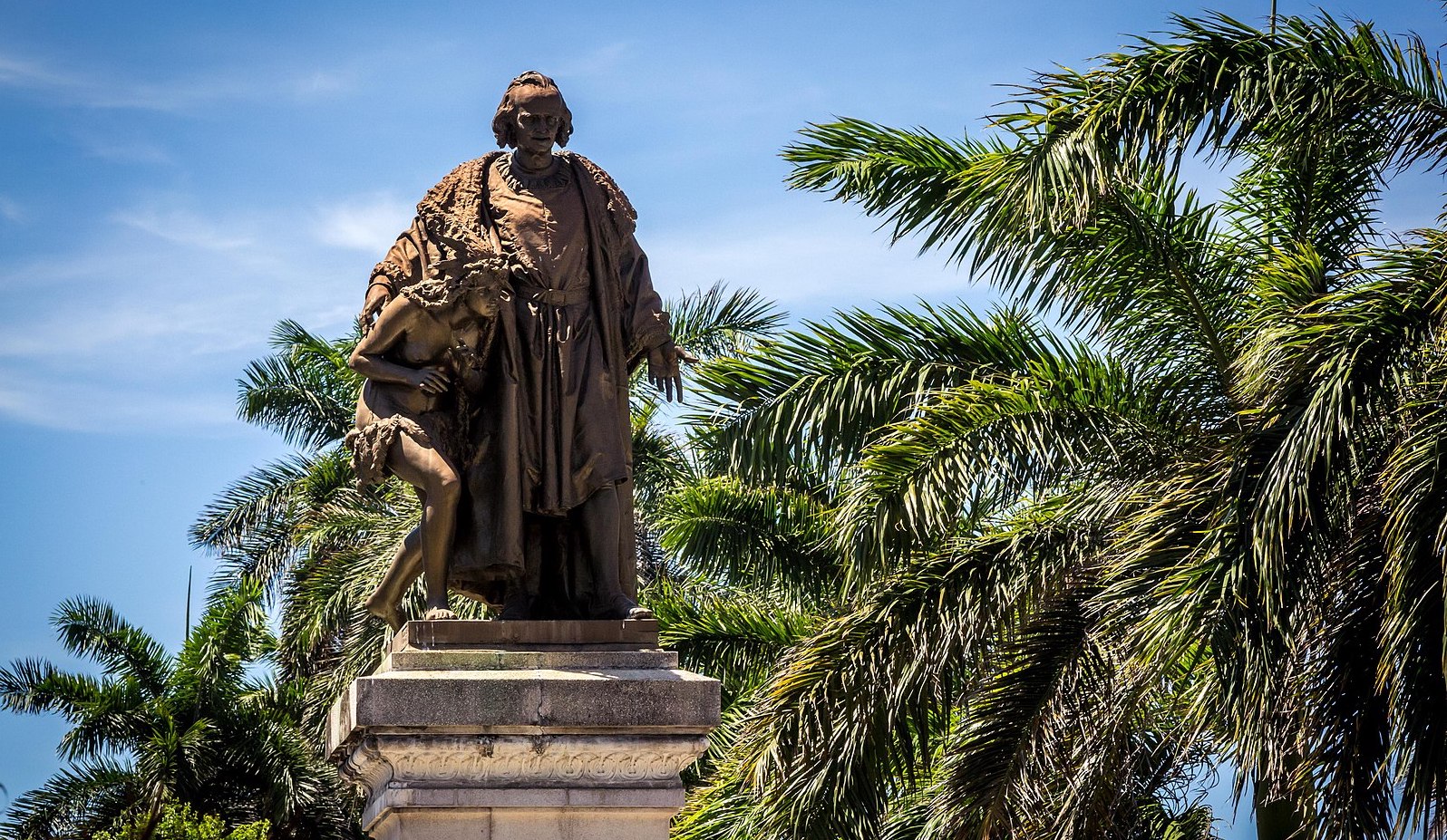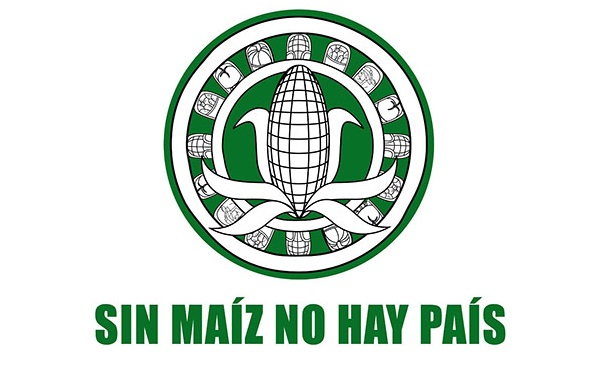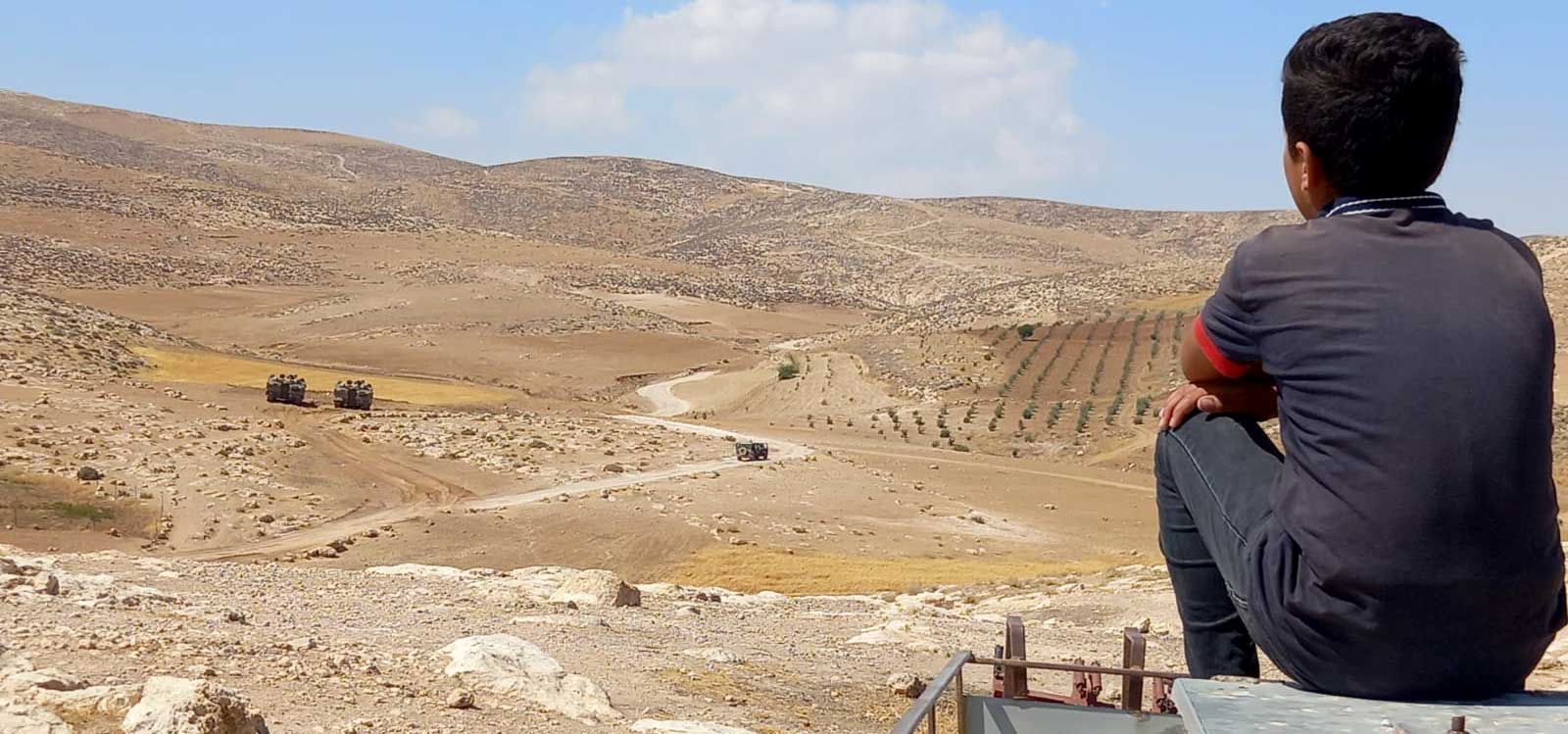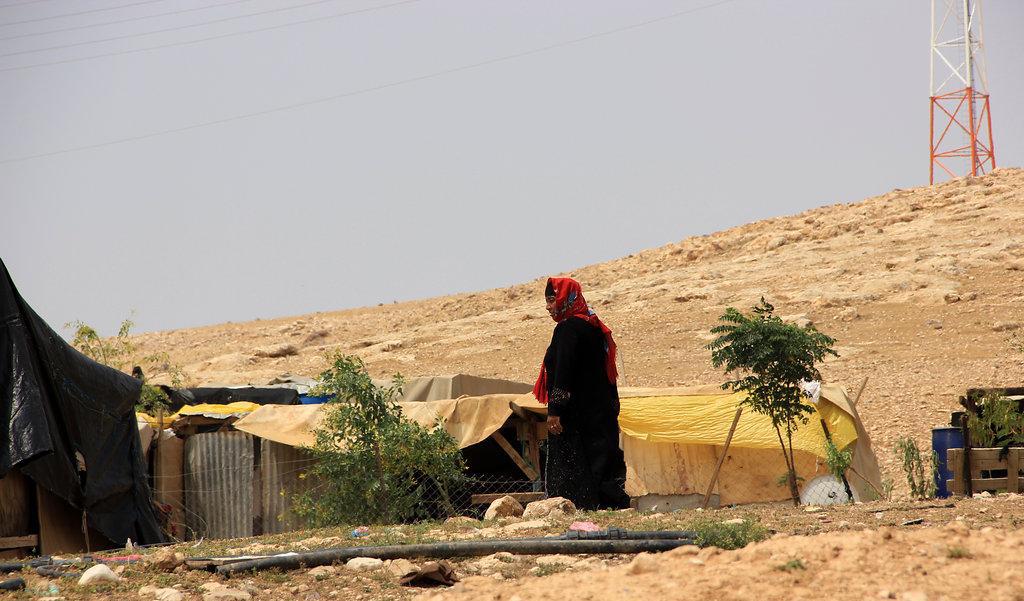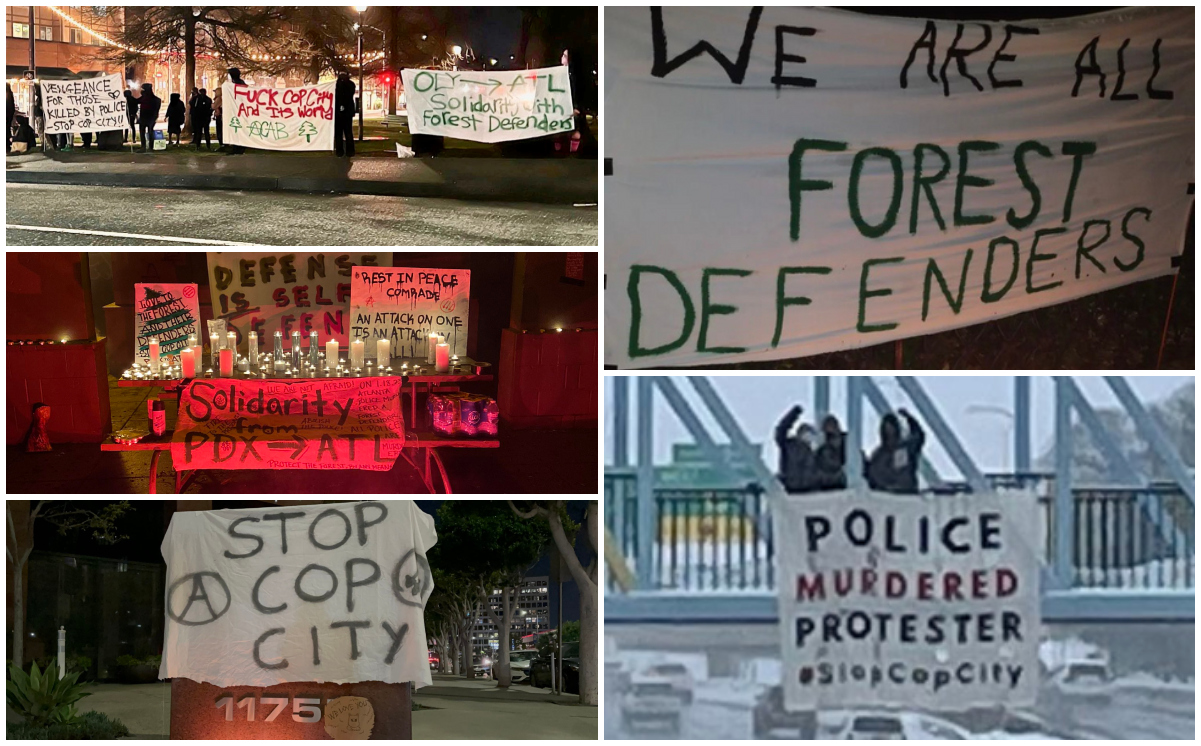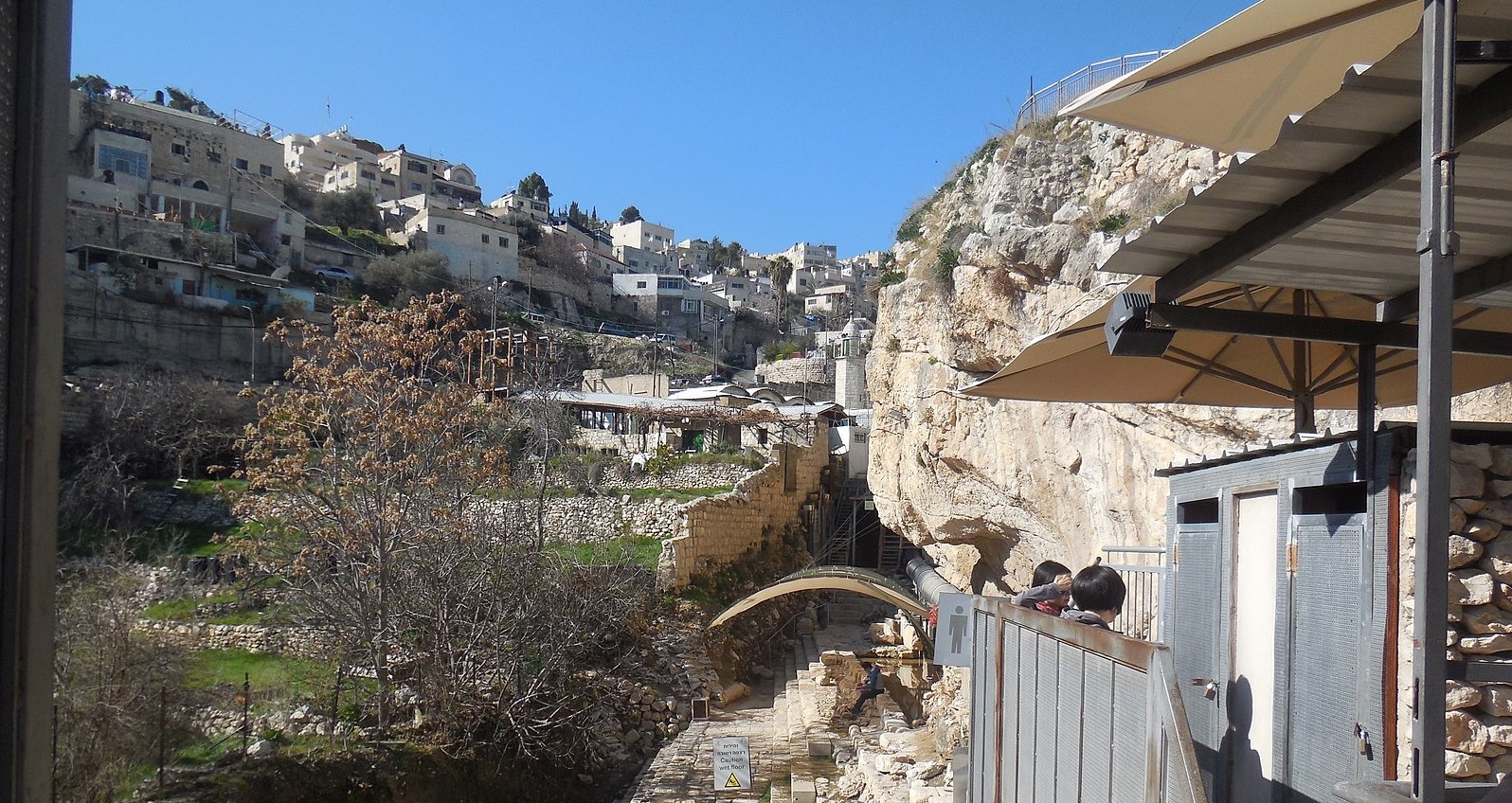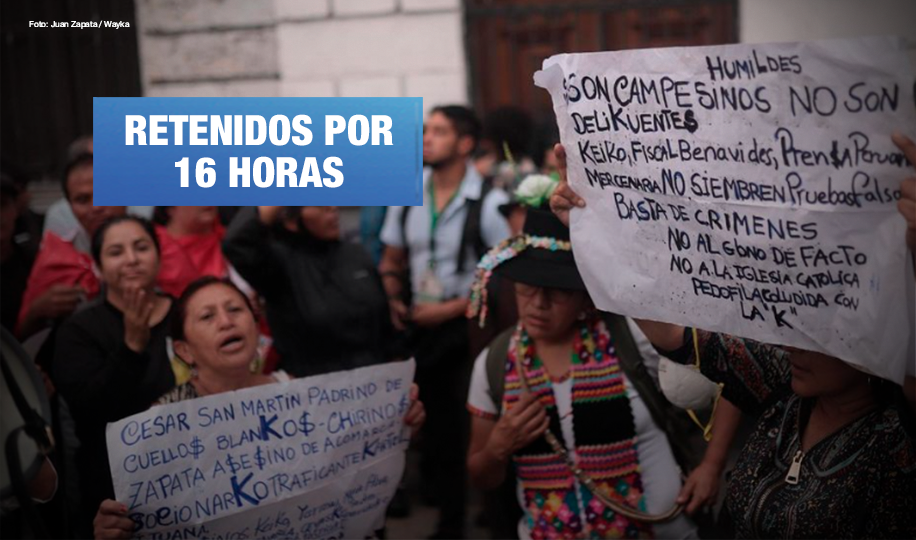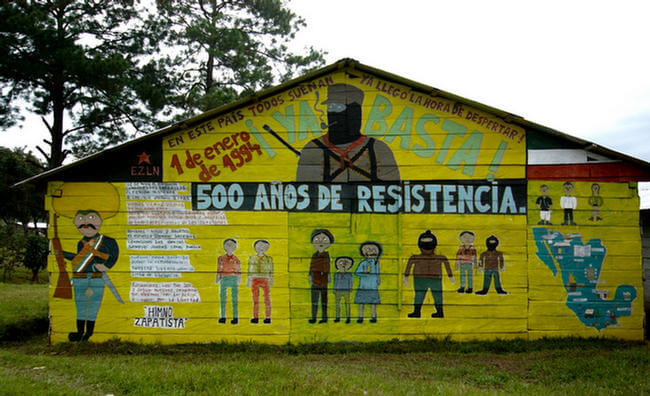
Protest paramilitary attacks on Zapatistas
An international mobilization was held, with small protests in cities across the world, in response to a call for support by the Zapatista rebel movement in Mexico’s southern state of Chiapas. According to the statement, the Zapatista base community of Moisés Gandhi is coming under renewed attack by the local paramilitary group ORCAO. In a May armed incursion at the community, a resident was struck by a bullet and gravely injured. Several families were displaced as ORCAO gunmen briefly occupied parts of the community. The statement charges: “Chiapas is on the verge of civil war, with paramilitaries and hired killers from various cartels fighting for the plaza [zone of territorial control]…with the active or passive complicity of the governments of [Chiapas governor] Rutilio Escandón Cadenas and [Mexican president] Andrés Manuel López Obrador.” (Photo: Chiapas Support Committee)



